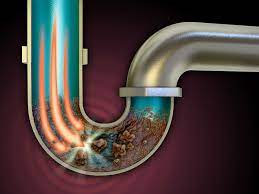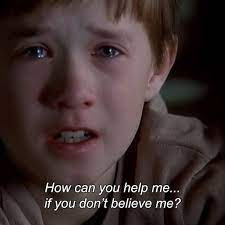I've got other things to do today but sometimes a thing gets hold of my brain and I have to clear it out before I can get to anything else. A thought clog, if you will.
Someone posted a thing on Facebook recently that basically said you can tell someone's intelligence by their sense of humor. At first, I thought that was right, because there is a certain level of smart that allows you to enjoy erudite, New Yorker humor.
Then I remembered what I've learned about humor over the years and I reconsidered.
So I'm going to attempt, in a single post(!) to try to ease your mind about why you have a PhD and still laugh at fart jokes. Ready?
Here's the thing about humor: it is completely subjective. I'm sure there are scientists who've done all kinds of tests to figure out where "funny" lives in our bodies and quantify humor, etc. I'm not sure how successful they've been.
We call it a "sense of humor" for a reason. I know we've all been sold on the five senses (six if you're Haley Joel Osment), but scientists have found a lot more.
Typically our "senses" are defined as physical reactions to external stimuli, but some external stimuli are subtle (e.g. our sense of our own physical space--we can touch our nose with our eyes closed). Scientists have defined between 14-20 senses (again, not counting HJO) and are probably still looking for more.What does this have to do with your sense of humor? Pretty much everything. I like brussels sprouts. You may hate them. Why? "Because they're yucky," is not an answer. You don't like the way they taste and your taste is neither good nor evil--it's just your taste.
Why do you laugh at a joke? "Because it's funny," is not the answer. Why is it that you can understand a joke, understand why it is meant to be funny, and yet not feel any spontaneous laughter from it? Again, your sense of humor is not good or bad--it's just your humor.
Which means that maybe you were laughing at The Three Stooges as a kid and still laugh at them because you can't help it if they make your stomach shake and your lungs dance and tears roll down your face. You can be a nuclear physicist or a clerk in the store.
Your funny is YOUR funny, no matter what your IQ is.
For my writer friends, here is an additional point I'd like to make:
When we're faced with a food we don't like, we don't eat it, and say, "Thank you, but I don't like peas." We own that as our taste preference. (Unless we're in grade school where there is a lot of pointing and, "You gonna eat THAT?")
When we're faced with a joke, or a book, or a movie, that does not make us laugh, we don't smile and say, "Thank you, but I don't like slapstick humor." We say, "It didn't make me laugh, therefore IT WASN'T FUNNY." Somehow our own taste in humor has been spread about to become everyone's taste in humor.
Which means that if you are writing humor and intend it to reach an audience and get the best audience you can, you need to be specific about your brand of funny. Are puns your forte? Anecdotal stories? Do your characters drip with stunning sarcastic wit?
Tell your audience what they should expect. And then scrub yourself daily with steel wool--if you write humor, you're gonna need thick skin.







